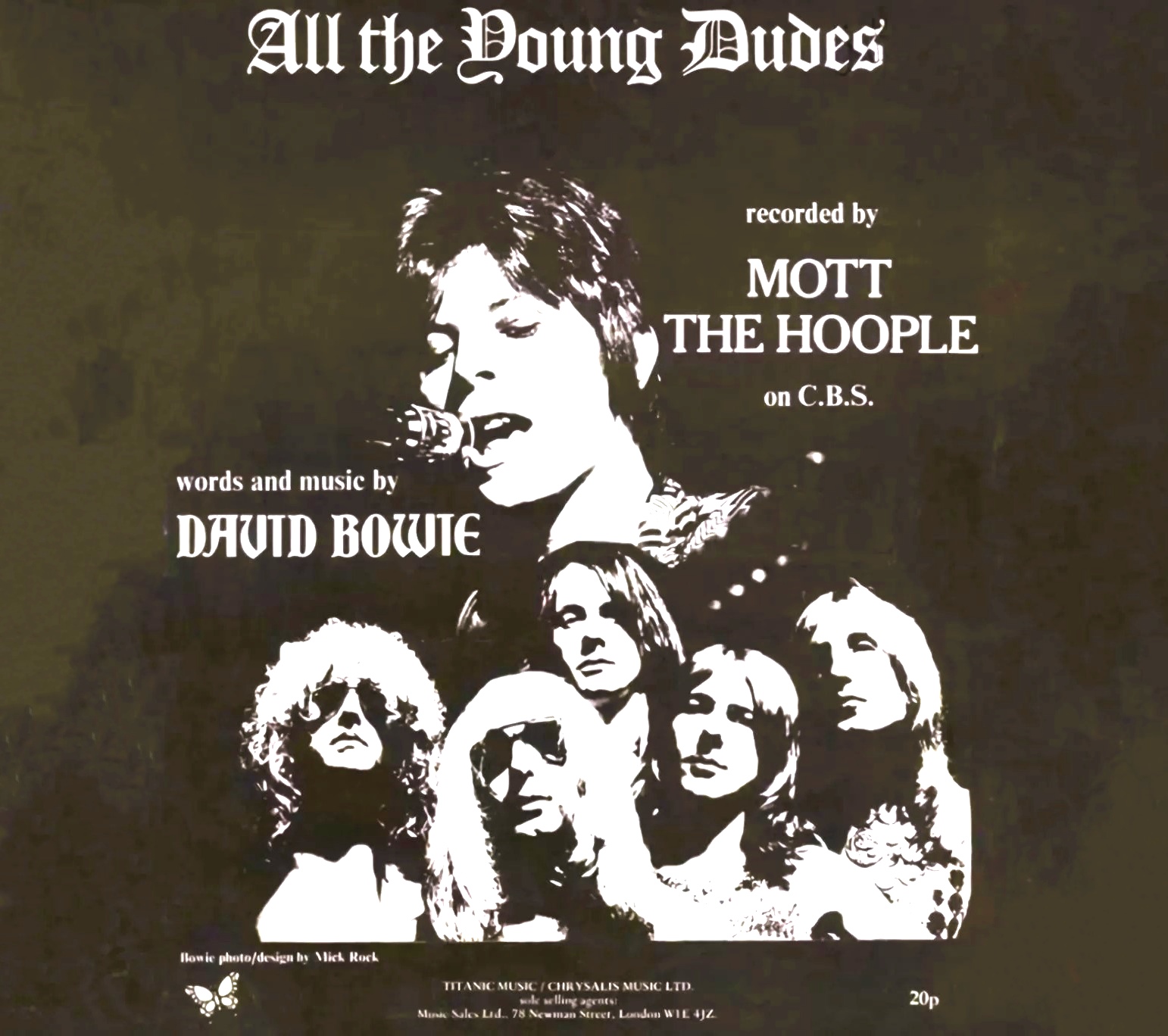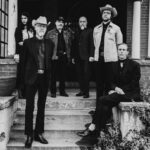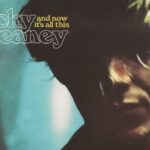
In an extract of a forthcoming podcast interview with Jason Barnard, Ian Hunter describes the background behind ‘All The Young Dudes’ and the impact of David Bowie on Mott The Hoople.
How did you pull together the material for those first few albums? There seemed to be quite a few covers and Mick Ralphs and Pete Overend Watts were writing some songs.
Pete and Mick were supposed to be the writers. They hired me as a piano player. But then Guy liked me as a singer because he said I sounded like Dylan. Not being a proper singer, I figured out, people like Dylan were getting it over in their own way. So that was the course I decided. And I used Dylan as a stepping stone, if you like, for the first, couple of years.
And everybody moaned at me, so I had to stop. By that time, you start finding your own thing, the way you can get yourself across. And the band weren’t too convinced at first. Then by the time the band didn’t want me in the band, then Guy wanted me in the band. It was very delicate, the first nine months. Meanwhile, we’re making these records. We don’t know what we were doing.
Guy’s like, “Do this, do that”. It was pretty frantic. Then we started touring, and the touring got kind of popular. And we were selling everywhere in the end, like the Newcastle City Halls, Birmingham City Halls.
But we didn’t have any record success, and you’d have to have that to sustain. People aren’t going to continue to turn up if you don’t chart, at least in those days. And that’s where David came into the scene.
How did he hear that you guys were on the verge of splitting up?
We had split, we split up in Switzerland. We came back and Pete now was looking for a bass job. He found out that David was looking for a bass player. Then David apparently had already got one or he didn’t want one. But he didn’t want Mott to split up anyway.
He said, “You can’t do that.” So Pete rang me and said, “Look, this bloke wants us to go down and listen to this record. He sent us one first that we didn’t particularly like and then the second one was Dudes. He played us that in Regent Street, sitting on the floor in an office, in DeFries’ office. That was it, ‘All The Young Dudes’.
What was it that made it a great single and superior to David’s version? Was it arranged differently?
Well, he’d done it already. The story goes that he hadn’t done it, he just wrote it overnight and gave it to us. That’s not true. He’d already done it. He did it in the key of C, which is a lower key.
We went and we took it up to D to make it a little more powerful. He hadn’t done the wrap, which I did over the hooks to make the hooks a little more interesting. He hadn’t got that amazing Mick Ralphs intro. He hadn’t got Phally, who was great on the organ.
But he had the knowledge of what he’d done and what he didn’t want to do again. It all came together in a couple of nights. We did that and ‘One Of The Boys’ at Olympic, Barnes. And It was quite magical, quick, great song.
You released a string of singles that matched the greatness of ‘All the Young Dudes’. Was it almost a challenge that you didn’t have to be reliant on David’s songs?
The press they could be pretty… now it was going to be that we were David’s band. He offered us, I forget. I know there was ‘Suffragette City’ in it at one point either before or after. But we only ever did ‘Dudes’ because we wanted to be Mott The Hoople. Then Mick and I spent a frantic nine months trying to find a single to follow the single, because this is what you do. I came up with a song called ‘Honaloochie Boogie’ and I think it got to about 11, something like that. So it was okay. Then we had ‘Memphis’, ‘Roll Away The Stone’, ‘Golden Age’. They were all our songs. But we still lost people because they’d liked the original crazy version of Mott, now we were more sophisticated apparently.
Do you think the experience of recording ‘All The Young Dudes’ shifted the sound of Mott? Did you respond to what was going on around you, whether it was David or other bands like T-Rex?
We had no experience with Guy. That was just a gang fight in a studio. We didn’t know what you could use. We didn’t know what you could do behind the board.
We didn’t understand how you could enhance things. We went to Air Studios when we did the Mott album, which was the one after ‘All The Young Dudes’. We happened to bump into Bill Price, who was an amazing engineer. We started actually using the studio instead of sort of waltzing in there and just jamming.
‘Dandy’, I’ve read that it was about David Bowie, is that right?
Yeah, good song. I think it was called ‘Lady’ or something else. Then that happened to David and ‘Dandy’ just fit. I was already working on the song, and it had a different lyric. I just transferred it when I heard about Dave. Because we owed him. [laughs]
Further information
The podcast version of this interview will be released in April. The full written interview is available on The Strange Brew.
Ian Hunter: ‘Definace Part 2: Fiction’ is released on Sun Records on Friday 19 April 2024. A limited edition 2LP vinyl edition featuring 3 bonus tracks will be available exclusively on Record Store Day, set for 20 April.




